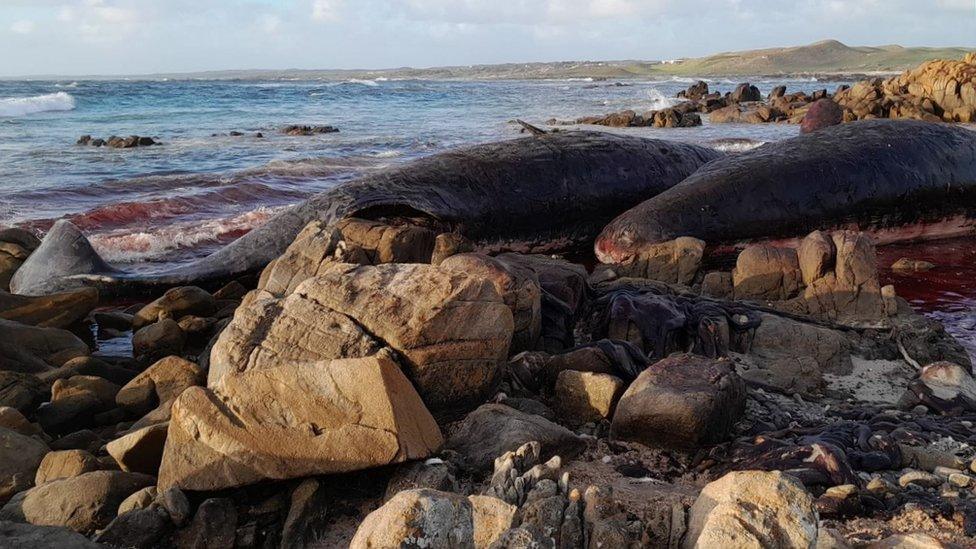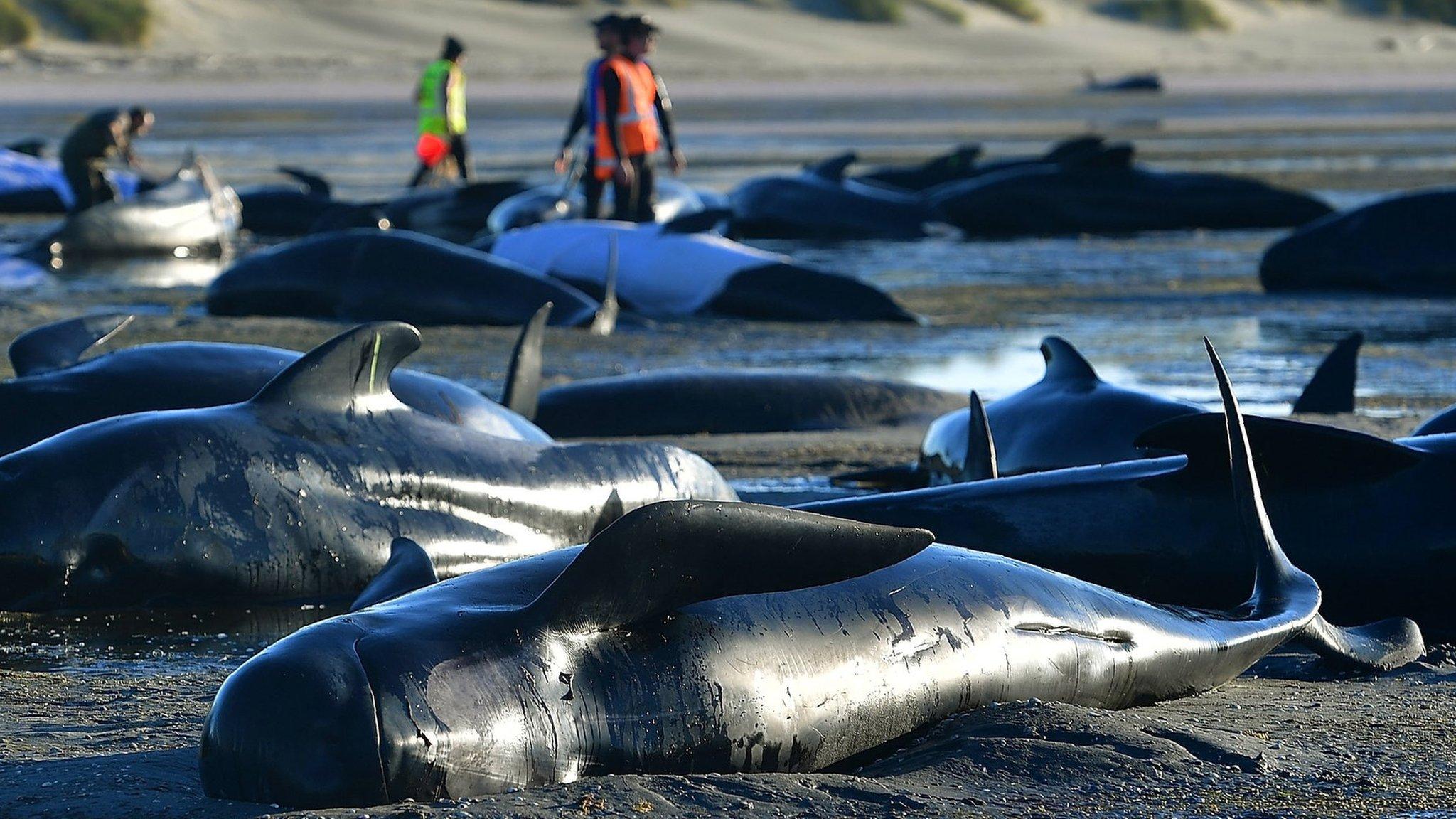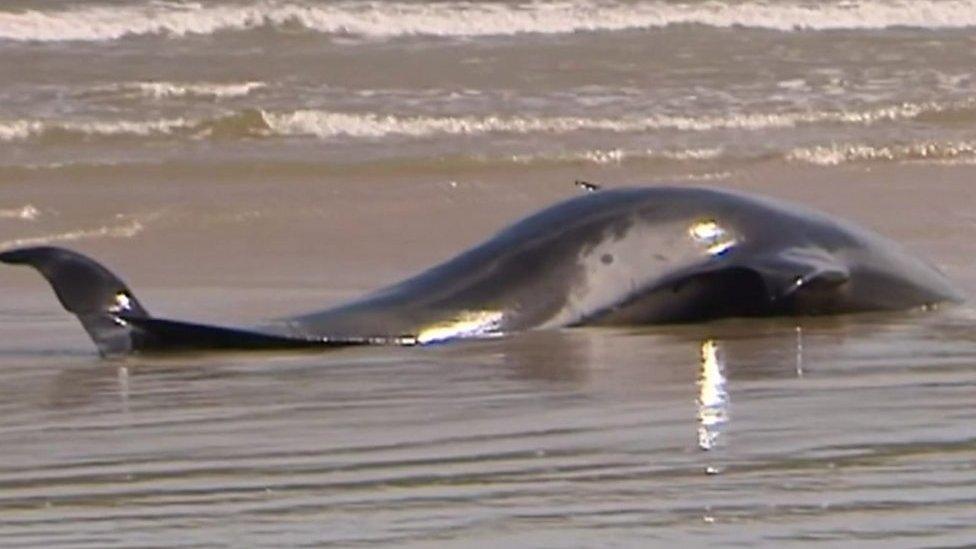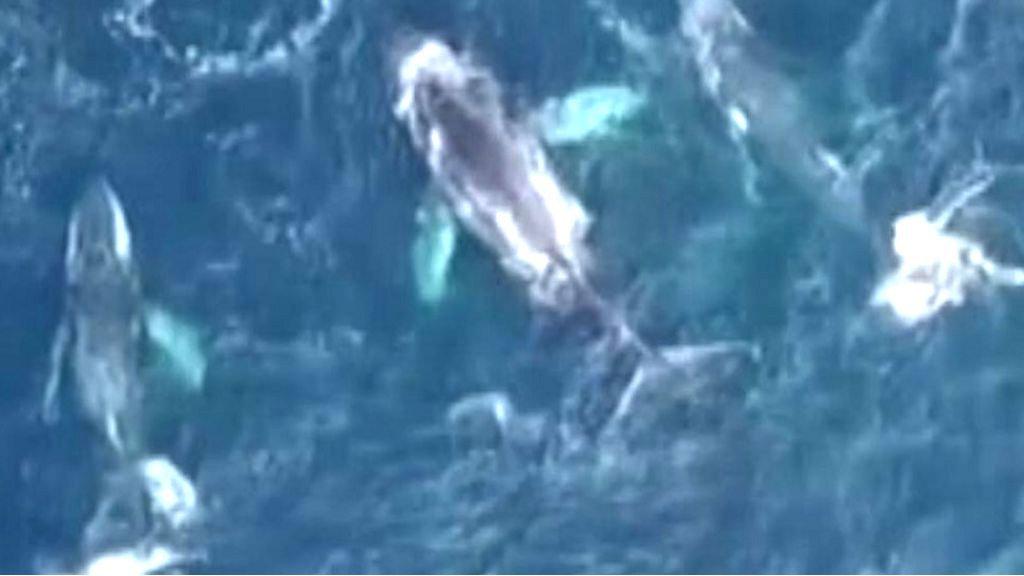Sperm whales die in mass stranding on Australian beach
- Published

King Island locals made the discovery on Monday
Fourteen young sperm whales have died in a mass stranding on a beach in Tasmania, Australia.
The whale carcasses were discovered by locals on King Island and reported to authorities on Monday afternoon.
The reason for the stranding is unknown, but wildlife biologists and a vet have been sent to investigate.
Whale strandings are not uncommon in Tasmania - experts say the island state is a "hotspot" for such events.
An aerial survey will determine whether more animals are stranded in the area, a state government spokesperson said.
Sperm whales, which are considered vulnerable globally, can grow up to 18m and weigh up to 45 tonnes.
Wildlife scientist Vanessa Pirotta said the dead whales were probably part of a "bachelor pod" - a group of juvenile male whales - that ran into trouble.
Sperm whales are like "deep-diving buses" and typically spend time in waters further offshore, Dr Pirotta said.
"All whale strandings remain a mystery. We don't exactly know why they happen," she told the BBC.
The whales may have "misnavigated", followed a sick or disoriented leader, or been startled into shallower waters, she added.
In September 2020, more than 380 pilot whales died in Australia's worst mass stranding. It was also in Tasmania - at Macquarie Heads on the island's west coast.
Though the cause remains unknown, Dr Pirotta notes Tasmania has "a lot of different currents intersecting with land".

You may also be interested in:
How to rescue a stranded whale
- Published30 November 2018

- Published24 September 2020

- Published13 September 2021
